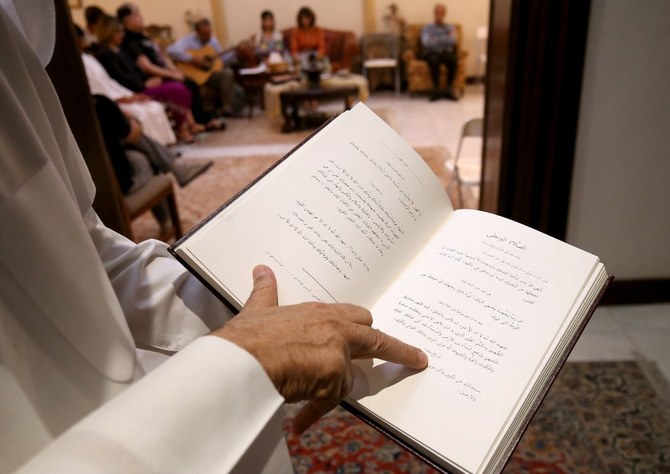Source: www.arabnews.com
RAY HANANIA

CHICAGO: The Iranian regime has sanctioned a “campaign of hate” to fuel public animosity against the country’s Baha’i religious community, Baha’i officials told Arab News.
Anthony Vance, Baha’i public affairs director in the US, said Iran has adopted laws that target its 300,000 Baha’is, barring them from universities and public sector employment, as well as confiscating their property and arresting their leaders.
The religious group was founded in the mid-19th century in what was then Persia, and now has about 8 million followers worldwide.
More than 2 million Baha’is live in India, and there are sizable communities in the Middle East, Africa and the US.
“After the 1979 revolution, between 1979 and 1992, over 200 Baha’is were executed, killed in Iran, mostly by execution. Most were elected members of the (Baha’i) administration institutions. It’s clear that the (Iranian) regime was targeting those whom they perceived to be the leadership of the Baha’i community,” Vance said.
“Baha’is are barred from university education. They’re barred from employment in the public sector, by the government that is, or in government-owned entities. Given that the public sector makes up more than half of the Iranian economy, that’s quite a disadvantage in that society,” he added.
“There are genuine efforts to impoverish the Baha’i community. There have been confiscations of Baha’i property, several thousands since the revolution. But more recently, there have been attempts to make it a normal, legal attempt in the country. Just to illustrate, last year there were two appellate court decisions to affirm the lower court in the province of Mazid Darran that said the Baha’is were ritually unclean and don’t have any right to own property.”
Vance said persecution by Iran “is quite systematic” and has prevented the Baha’i community from growing in recent years.
The Baha’is are the largest non-Muslim religious minority in Iran. The religion’s principle founder, a merchant who adopted the name Bab (“The Gate“), was executed in 1850 after he began preaching that another prophet similar to Jesus and Mohammed would appear. Persecution increased under the ayatollahs following the 1979 revolution.
Vance said Baha’is respect and recognize the importance of the Christian and Muslim traditions, and it is a monotheistic religion.
Persecution of Baha’is by Iran was the focus of a resolution introduced on Oct. 25 in the US House of Representatives, which condemned Tehran’s state-sponsored persecution of the community. There are more than 180,000 Baha’is in the US, Vance said.
The resolution called on Tehran to immediately release imprisoned or detained Baha’is and all other prisoners held solely on account of their religion; to end the campaign of hate propaganda against the Baha’is; and to reverse state-imposed policies denying them and members of other religious minorities equal opportunities to higher education, earning a livelihood, due process under the law, and the free exercise of religious practices.
It also calls on US President Joe Biden and Secretary of State Antony Blinken to condemn the Iranian regime’s continued violation of human rights and demand the immediate release of prisoners held solely on account of their religion.
The resolution, introduced by Florida Democrat Ted Deutch and supported by a bipartisan group, also calls for sanctions on Iranian regime officials over human rights abuses against the Baha’i community.
Vance praised support from the governments of Bahrain, the UAE and Saudi Arabia, where there are small Baha’i populations.
November 27, 2021 10:25 am
Baha’i’s the world over are grateful for the outpouring of support that brings light to a dark corner of Iran’s current affairs. The misspent effort to build and sustain prejudice through campaigns of deliberate misrepresentation of Baha’is and of others, undermines Iran’s attempts at progress and hobbles mankind generally. The resolution named in this article is an affirmative step, recognizing that pursuing the cause of fairness in Iran and elsewhere is a path toward the universal revitalization of the wellbeing of all nations.